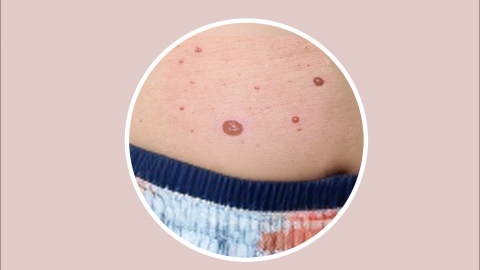Can cherry angiomas be inherited by the next generation?
Cherry angiomas generally have a certain genetic predisposition, but they are not strictly inherited. Individuals with a family history of cherry angiomas may have a higher probability of developing them compared to those without such a family history, whose offspring have a relatively lower risk. If concerned, it is recommended to consult a healthcare professional early. Detailed analysis is as follows:

In cases where inheritance is possible, there is often a family history of cherry angiomas. These individuals may carry genetic susceptibility factors, increasing the likelihood of passing them on to their offspring compared to the general population. However, genetics is not the sole determining factor. Whether or not offspring develop the condition also depends on acquired factors such as aging, skin aging, and ultraviolet (UV) exposure. Simply carrying genetic susceptibility does not guarantee the development of cherry angiomas.
Cases with low heritability typically involve individuals without a family history of cherry angiomas, who lack the relevant genetic background, resulting in a lower probability of passing the condition to their children. Most cherry angiomas appear later in life and are associated with natural skin aging and environmental stimuli rather than being directly caused by genetic factors. In such cases, the risk for offspring is not significantly different from that of the general population.
There is no need for excessive concern about the genetic tendency of cherry angiomas, as they are benign and have minimal impact on health. If any skin abnormalities such as raised lesions or red papules appear in offspring, timely medical evaluation is recommended for accurate diagnosis. Daily skin protection, including minimizing excessive UV exposure, can help reduce the likelihood of developing cherry angiomas.








